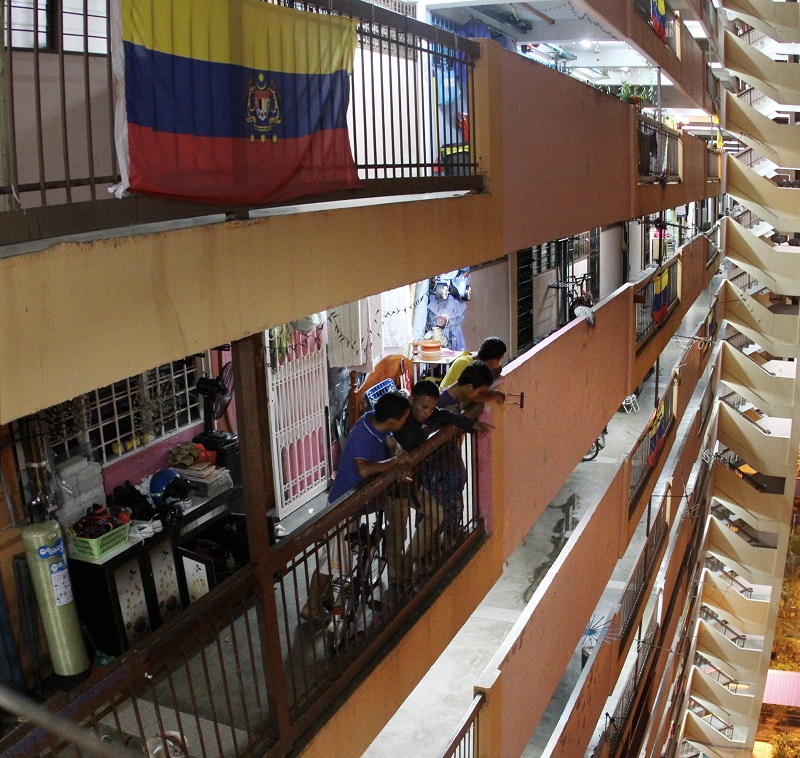BY BAVANI M.
EXCLUSIVE: KUALA Lumpur City Hall (DBKL) has launched a crackdown on rent defaulters and people who sublet their government housing units to third parties.
The operation is being carried out to weed out hundreds of tenants suspected of renting out their units to non-deserving individuals.
A team of about 40 officers dubbed “Skuad Jejak Kasih DBKL” from the Housing and Community Development Department will be visiting occupants at People’s Housing Schemes (PPR) to investigate tenancy cheats and carry out audits to check that the people living in the premises are those in the local authority’s registry and eligible.
Department director Wan Mohammad Ghazali Nor said the team would be visiting some 60,000 residential units at different times of the day over a period of two weeks.
He said a crucial aspect of the exercise was to update the database of tenants.

The audit by DBKL will collect information such as change in number of children, job status and current income level.
“This census is aimed at updating the status of the tenants. They should tell us of any changes in their household such as the number of children or a change in job status and current income level,” he explained.
He said a similar exercise was carried out last year but instead of going door to door, tenants were advised to update their status online but less than 20% responded.
“So this time our officers will visit the homes and distribute a simple questionnaire which tenants have to fill up. We will then follow up with two more visits.
“When the tenants first move into the units, they are usually squatters or poor families struggling to make ends meet and are in need of cheap housing. But as the years go by, some get better jobs with better pay and are no longer eligible for this affordable housing,” he added.
According to Wan Ghazali, a similar crackdown previously involving 30,000 units found that 50% of the tenants were not at home.
“So this time our officers will go at different times of the day. Tenants who are not at home after the third visit will have to come to our offices personally and explain their absence,” he said.
He said those found to have sublet their units would be blacklisted.

Wan Ghazali knocking the door of a PPR unit. With him are the “Skuad Jejak Kasih” officers. Photos: IZZRAFIQ ALIAS
When asked if there were many such cases, Wan Ghazali said: “I cannot tell you how many do this; there are cases, but this time we are going to catch these cheats,” he said.
A research carried out by Malaysian Citizen Complaints Centre (PAR), an NGO that helps poverty-stricken families get housing, had reported cases of tenants who earn up to RM5,000 a year by moving out of their PPR unit and renting it out at a higher rate, usually to poverty- stricken families.
In some cases, according to PAR chairman Datuk A. Chandrakumanan, the units are rented out to foreign workers.
“There was a case in Bandar Tun Razak where a poor family had their water locked by DBKL for not paying their rent. When we investigated, we found out that the original tenant did not pay the monthly RM124 rent to City Hall, despite collecting RM350 from the poor family each month,” he said, adding that the closer the housing scheme was to the city, the higher the rent demanded by the original tenants.
StarMetro had previously reported that DBKL was facing a major housing crisis which resulted in a long waiting list for government housing.
“DBKL’s crackdown is timely because the housing wait list has more than doubled in five years and hundreds of deserving people are denied housing because of the action of cheating tenants,” Chandrakumanan said.
“We are more than willing to share resources in getting rightful tenants into homes they need and deserve,” he added.












































